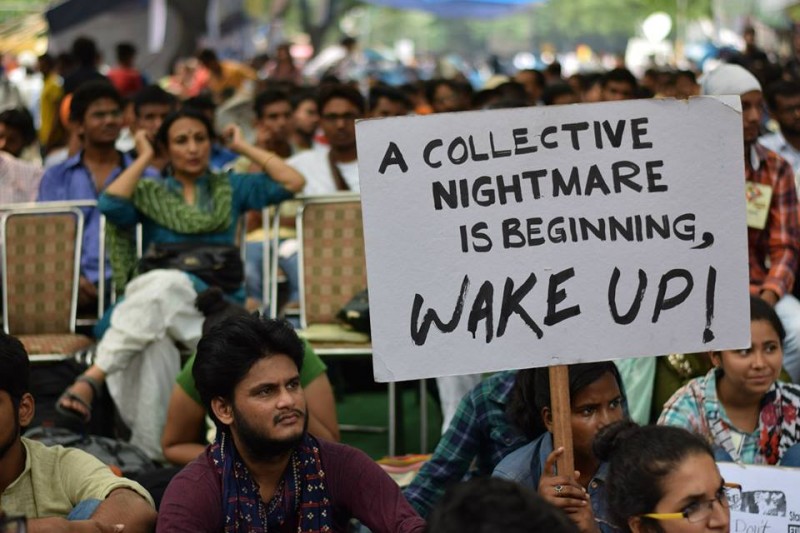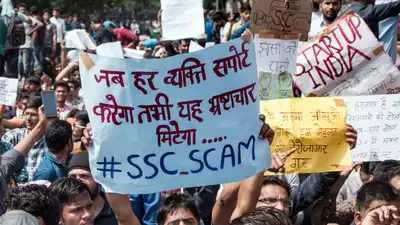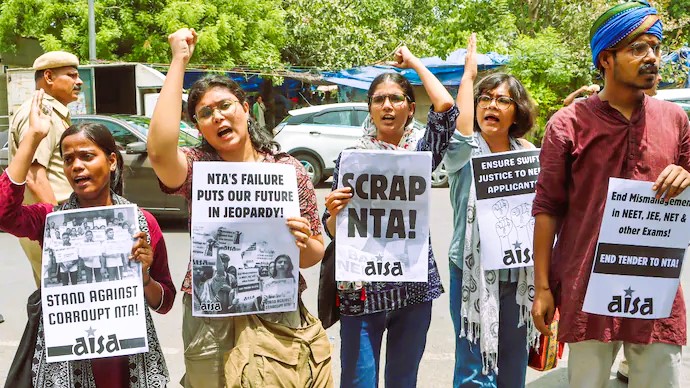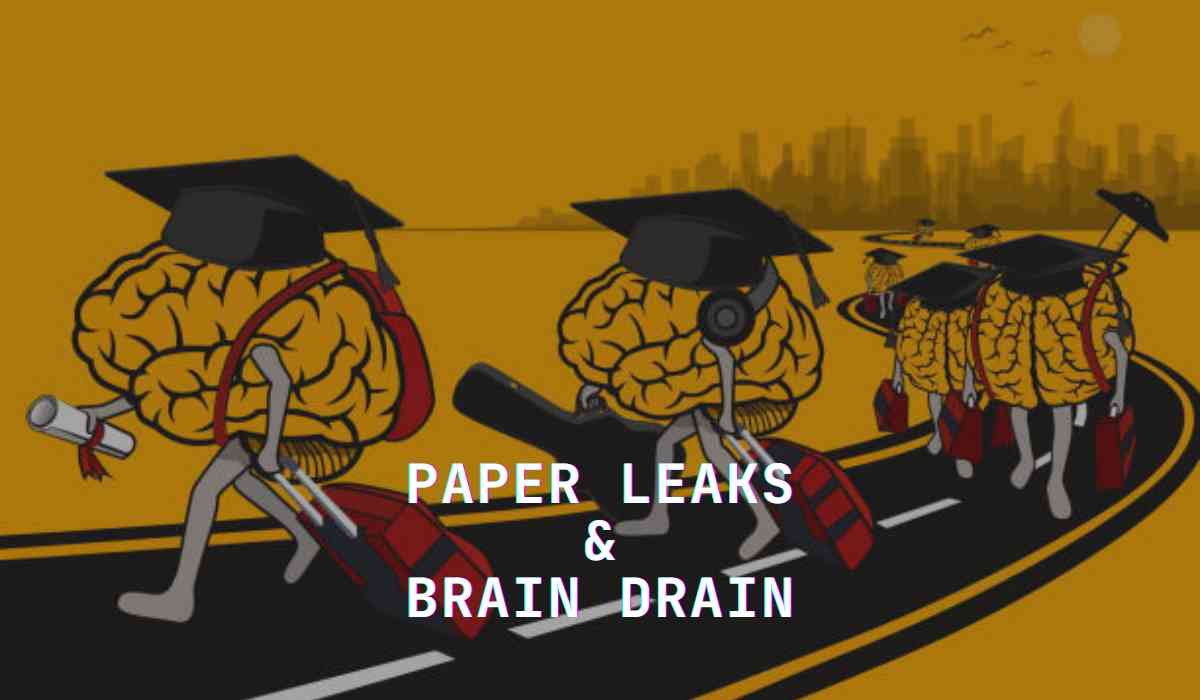In recent years, India has been rocked by a series of scandals that have shaken the very base of its educational edifice. Exam scams and paper leaks have become a perennial nightmare, gnawing into the vitals of trust, killing dreams, and advancing a brain drain that has already bled the nation of its best minds. That the consequence of such scandals is deep and wide means that it is not limited to people's lives; this reaches right up to the damage done to the nation itself.

A History of Migration and Opportunity
Even though India's land has been a land of opportunities for long time, it has also been the land from which talent fled in search of greener pastures.
The phenomenon of brain drain can be traced back to the latter part of the 20th century, when inappropriate opportunities, lack of infrastructure, and political stability pushed a good number of the best brains in India to set their fortunes abroad. The United States was the prime candidate for Indian talent since it had sound educational frameworks, promising career prospects, and a stable political environment.
Standout cases of this exodus include Sundar Pichai, CEO of Alphabet Inc.; Satya Nadella, CEO of Microsoft; and Indra Nooyi, former CEO of PepsiCo. These were some of the towering personalities who left the country along with hundreds of others when India failed to offer them both resources and opportunities that could let them bloom. Their exits were not just private losses but tragedies for the country as a whole: the intellectual flight India cannot afford.
_1719686692.png)
The Cycle Goes On: Examination Malpractice and Contemporary Brain Drain
This cycle of brain drain will be perpetuated shortly with the recent spate of exam scams and paper leaks that have rocked the nation in the last few years. In fact, in a decade, India experienced numerous high-profile examination scandals.
Some of the most notorious ones include:
1. Vyapam Scam (2013): A massive admission and recruitment scam in Madhya Pradesh related to fixed entrance examinations for professional courses and state government jobs.
2. SSC CGL Exam Leak (2017): The papers of the Combined Graduate Level Examination of the Staff Selection Commission were leaked, followed by widespread protests and a re-examination.
3. CBSE Paper Leak (2018): Question papers for Mathematics, class 10, and Economics, class 12, leaked—hurting over 2 million students in the country.
4. NEET Paper Leak (2016, 2017): The National Eligibility cum Entrance Test (NEET) saw its papers being repeatedly leaked, causing much havoc and loss of trust in the process of examinations.
5. Haryana Civil Services Exam Leak (2021): The question paper of the Haryana Civil Services exam was leaked, leading to massive cancellation and rescheduling of the same.
6. Neet-UG Scam (2024) :This is the very recent exam leak that has been in the limelight and been a heated topic of discussion in the very early days of the 18th Session of Lok and Rajya Sabha.

For more on this, read : NEET 2024: Supreme Court Halts High Court Proceedings Amid Students' Arrests Over Paper Leaks
Every one of these incidents disrupts the lives of millions of students and undermines the credibility of educational institutions in India.
Monetary and Emotional Costs
The financial cost of these scandals is staggering. On average, a student pays around ₹50,000 to ₹1,00,000 in coaching fees, study materials, and travel expenses for preparations alone. In the CBSE paper leak alone, almost 2 million students are reported to have suffered this grave misfortune. Thus, its estimated financial loss is about ₹2,000 crores. This does not include most likely incalculable indirect costs in emotional trauma and waste of time.
The emotional toll is all the more. It is a matter of years of a person's life invested in the preparation for these examinations—only to get nothing due to the systems of corruption. The disillusionment and despair experienced by these young minds cannot be measured.
It is a heavy burden also that comes upon the parents: they invest their hopes, dreams, and monies in the education of their children, which go in vain once such efforts are frustrated by these acts. A sense of betrayal and hopelessness encumbers them: They had believed in a system that promised so much but delivered nothing but dashed expectations.

For more news: Another NEET Aspirant Suicide In Kota, Marking The 28th Case This Year
Deplorable Effect on Generations to Come
The effect of it all is quite devastating on the up-and-coming generation in this age when social media ensures that no scandal remains hidden. Connected and aware, young Indians are watching upfront the degradation of systems they are supposedly expected to trust. It breeds further cynicism and disengagement, fueling their desire to find opportunities elsewhere.
This loss of faith extends far beyond educational institutions to governance and regulatory bodies. Every new scandal increases the lack of confidence in those holding power, feeding a cycle of disenchantment and emigration. When students and parents stop believing in their country as a source of a fair and stable route to success, there can be no reward for looking elsewhere.

The Vicious Brain Drain
It has many implications for these continuing scandals. When more significant numbers of brighter people begin to emigrate from the country, India loses precisely those minds that could bring in a chance for change and improvement of the system. This creates a vacuum that can hardly be filled and starts a cycle of mediocrity and corruption. People would move in search of better quality education and job opportunities.
Prominent NRIs included Arvind Krishna, CEO of IBM; Shantanu Narayen, CEO of Adobe; and Ajay Banga, former CEO of Mastercard, These examples have gone as a showcase for the enormous talent pool that has drained out. They had left during the brain drain era when it was necessary to go abroad in search of better educational and professional opportunities. Their going abroad was not by choice but rather out of compulsion—proof of India's failure to retain its talent.

Conclusion: Call to Action
The direction in which the present education system of India is going, with scams about the leaks of exam papers, is not how to continue. It entirely betrays millions of aspirations, and it is a disservice to the future of the country. The government, institutions, and society must all stand up for action to restore trust. Otherwise, brain drain will continue to rob India of its intellect, innovators, and hope. It is high time now for change.
This is a time when India has to stand up, wipe out corruption from its educational system, and rebuild faith in it among the youth so that it can possibly hold on to its bright minds and promise a more hopeful future for everyone.
Inputs from Multiple Agencies
Media from multiple sources
Ⓒ Copyright 2024. All Rights Reserved Powered by Vygr Media.

























